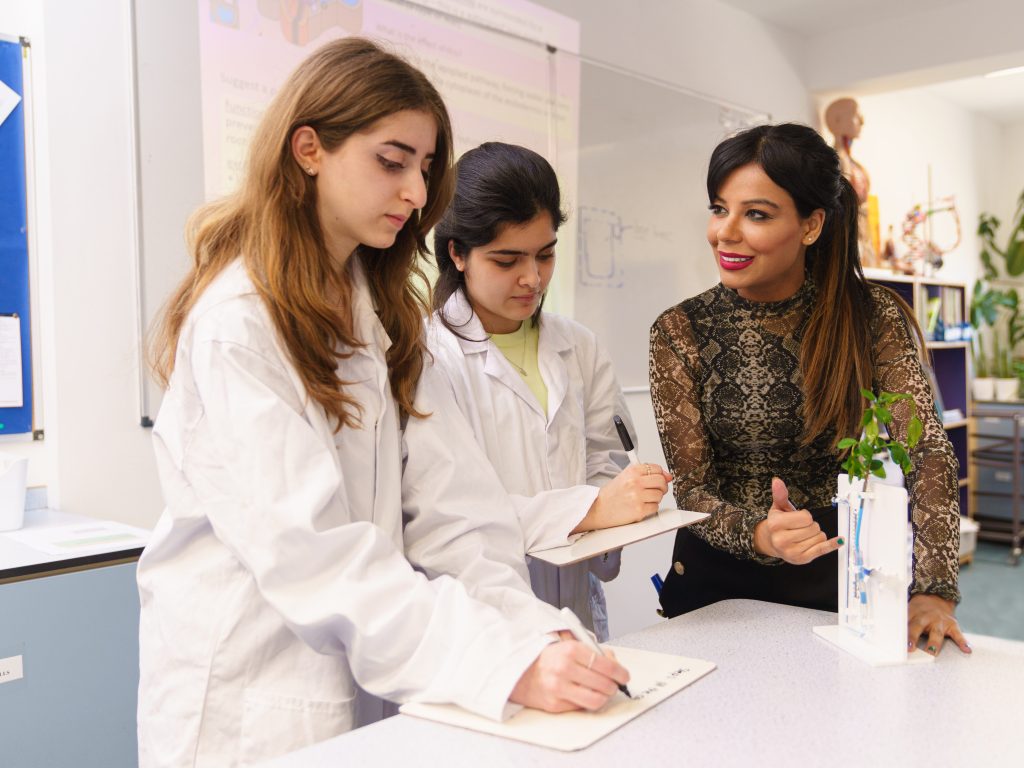At a conference I attended recently with some other Headteachers, a keynote speaker invited us as delegates to recall a moment in which we felt proud and happy in our work. I’m fortunate enough to have had many such moments, but without doubt, one of the most special moments in my career came a couple of years ago when I received an email from a student whom I had taught the previous year and mentored through the Brampton College Medical School Programme. It read: OFFER FROM ANGLIA RUSKIN!!!!!!! It was followed a year or so later by an email from another student, which equally brief and to the point, read something along the lines of: I GOT INTO ST GEORGE’S!!!
I have been very fortunate to have worked with some exceptional young people at Brampton over my four years here, many of whom are now studying for degrees in medicine, dentistry or other allied health care degrees. But I will always remember these two particular successes for the sheer emotion, because I knew so much about the journey those two individuals had been on, and because I witnessed the sacrifices they made to achieve what they did. In both cases, they had applied unsuccessfully the previous year and, undeterred, they embarked on the long process of applying to medical school again ‘post-A level.’ With continued hard work, they built their portfolios and strengthened their applications, with one of them employed full time in the NHS’s stretched mental health services. Like all successful applicants, both students are a tribute to what can be achieved through hard work, dedication and self-belief; all of which, and much more, are needed in abundance to make a successful medical school application.
Medical or dental school entry is extremely hard to achieve and is getting harder. The pandemic had two direct impacts – one was to fill these institutions up – so many students achieved their grades in those years they were bursting at the seams and even had to ask some candidates to defer a year or two. The second was, rather hearteningly, to inspire more young people to apply and so the competition for the few places available got fiercer.
Not only is the competition for places extremely intense, but the process is also long. We tell our students that it is like doing an extra half an A level for a year or more. I have heard it described as a ‘marathon not a sprint’ but I think a heavyweight boxing match is a better sporting analogy. Our medical school hopefuls are required to be at their very best throughout a process that comes in intense stages (or rounds) and applicants have their resilience tested throughout, sometimes having to change plans or strategy as events unfold. Even successful candidates suffer setbacks along the way and a measure of their success is how they can pick themselves up from these and keep going until the end of a grueling challenge.
To begin with, the medical schools expect candidates to demonstrate their knowledge of, and aptitude for, their chosen career and so a scramble for scarce places as volunteers and in work experience begins. If you think it’s easy to get a work experience place in a busy surgery or hospital, think again..! Students then top-up their reading and research to put together a reflective and detailed personal statement. However, before submitting this, they sit for the UCAT exam – a brutal, difficult-to-prepare-for test that spits out your result the minute you finish it and is taken before applications are sent. Anyone who is still in the running at this point may be sent a supplementary application form asking them to reflect on their “careers” to date, and only then might they be called for an interview, or MMI (a kind-of speed-dating system used to select candidates), at their chosen university.
Brampton has a long tradition of successfully preparing students to win sought-after medical and medically-related university places. This year, Brampton has no fewer than 16 students who have been through its medical forum, including two, who like the two candidates I mentioned above are applying ‘post A level,’ holding offers from medical schools (9), dentistry (6) and veterinary (1). These are from universities including Oxford, UCL, Plymouth, King’s College, Leeds, Birmingham and Bristol; some of the best institutions in the UK and other universities overseas.
By the time you read this, our prospective medics will all have tackled the final round – the small matter of their A level exams – and they await the outcomes of applications that began over a year ago. Of course, as a user of the NHS, I am reassured that the barriers to entry are high, but having seen what it takes to overcome them, I can’t tell you how proud I am of this group of young people.
John Wilson, Principal




